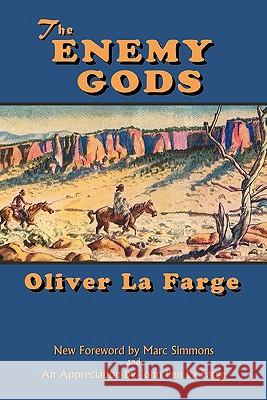The Enemy Gods » książka
The Enemy Gods
ISBN-13: 9780865346710 / Angielski / Miękka / 2010 / 364 str.
The Enemy Gods
ISBN-13: 9780865346710 / Angielski / Miękka / 2010 / 364 str.
(netto: 108,72 VAT: 5%)
Najniższa cena z 30 dni: 112,27
ok. 16-18 dni roboczych.
Darmowa dostawa!
In his first book, the Pulitzer Prize-winning novel "Laughing Boy," La Farge presented a superb lyrical story of Navajo Indian life. He later returned to the Navajo scene with "The Enemy Gods," a richer, deeper book than he had written before, and its theme, both an absorbing story and a living social document, is nearer to his heart.
In his first book, the Pulitzer Prize novel "Laughing Boy," Oliver La Farge gave us a superb lyrical story of Navajo Indian life. In the fullness of his maturity as a writer, he later returned to the Navajo scene with "The Enemy Gods," a richer, deeper book than he had written before and its theme, both an absorbing story and a living social document, is nearer to his heart. It centers around Myron Begay-Divine Arrow is his Indian name-a young Navajo who is apparently won away from his tribe until he believes that he can solve the problem of life by making an imitation white man out of himself. Never able to escape from what he really is-a potential leader of his own people-he becomes more and more confused until he finally breaks down and commits murder. As one under a curse, Myron instinctively goes back into the Navajo country where he drifts as a lost soul. Through a series of superb scenes, the story rises to the final emotional crisis leading to the solution of his life. Born in 1901, Oliver Hazard Perry La Farge is ranked among the literary lions of American Southwestern letters. Since his death in 1963, his reputation has continued to grow and new honors have been added to his name. "Laughing Boy," a novel of Navajo life, won the Pulitzer Prize in 1930, putting his name in lights before he was 30.











